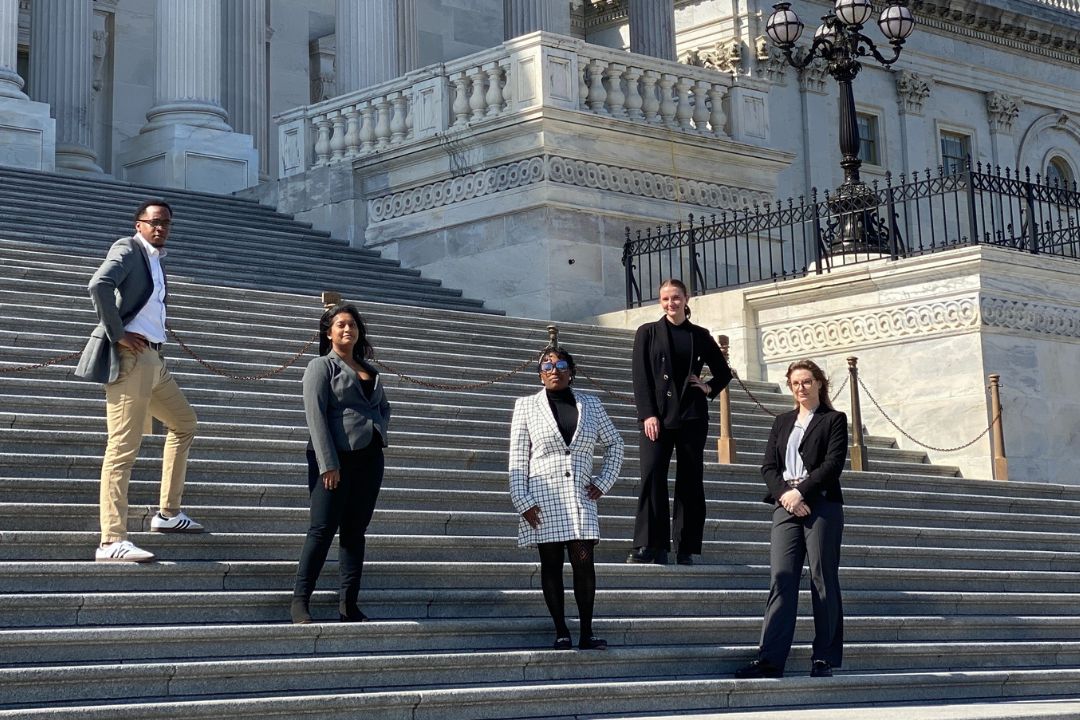Following a recent visit to Capitol Hill where students presented their research findings on the U.S. housing and eviction crises, the Congressional Hispanic Caucus invited the Health Justice Policy & Advocacy Clinic, directed by Professor Emily Benfer, to participate in a virtual briefing for its members on the federal 30-day eviction notice requirement and related housing matters. The event took place on April 16, 2025, and included remarks by student-attorneys Julia Scolapio (Class of ’25), Kenneth Forward (Class of ’25), and Samantha Traina (Class of ’25).
The federal 30-day eviction notice law requires that residents in federally-assisted and federally-backed housing must receive at least 30 days’ notice before an eviction can be filed from these units. This notice period provides tenants time to stabilize after challenges such as job loss or medical emergencies. It also allows Public Housing Authorities the opportunity to provide housing providers and landlords back-rent after income adjustments. By giving tenants the time needed to address such issues, property owners can recoup any missed rental payments and avoid the costs associated with eviction proceedings and unit turnover—costs that can total up to as much as $11,000 per case.
One topic discussed during the briefing was the proposed Respect State Housing Laws Act (RSHLA), which would remove the federal 30-day requirement. The National Housing Law Project representatives expressed concern that such a change could impact tenants' housing stability and increase strain on both residents and housing systems, particularly in communities that already experience elevated rates of housing insecurity and eviction.
In addition to GW student-attorneys, Speakers included:
- Noëlle Porter, Director of Government Affairs, National Housing Law Project
- Marie Claire Tran-Leung, Evictions Initiative Project Director, National Housing Law Project
- Peter Hepburn, Assistant Professor of Sociology, Rutgers University–Newark; Associate Director, Eviction Lab at Princeton University
- Francisa Salamanca, Housing Choice Voucher Program Tenant
More than 75% of the Congressional Hispanic Caucus attended the briefing. The briefing served as an opportunity to share research, personal narratives, and legal perspectives with policymakers considering changes to federal housing protections. Within 24 hours, staffers from multiple offices followed up to request additional information and explore policy options.


